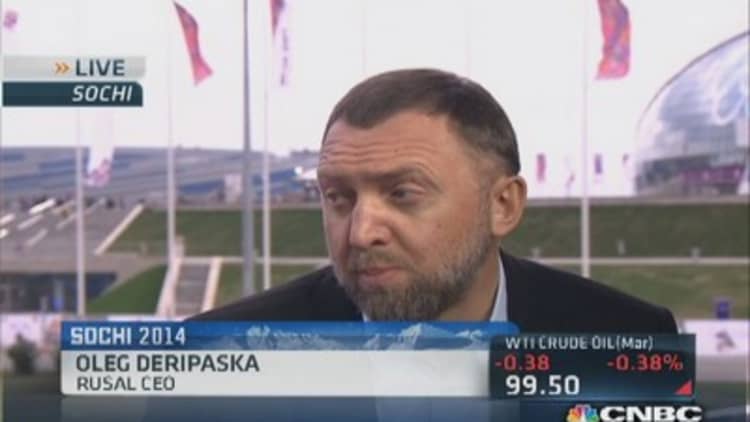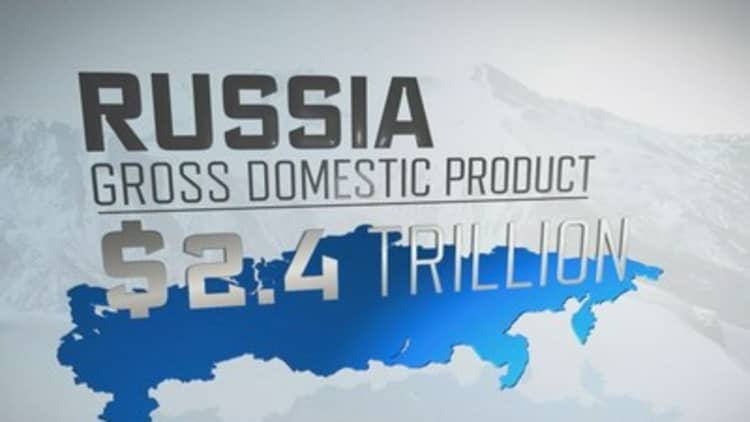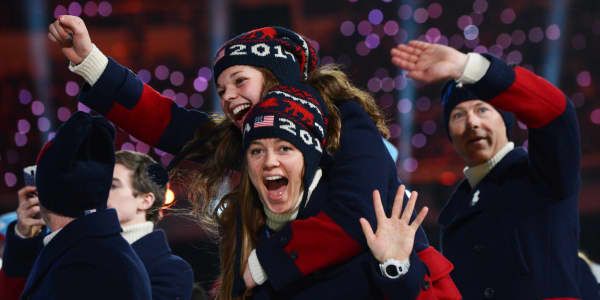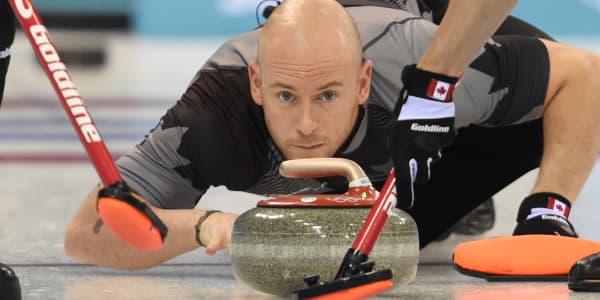
Russian billionaire Oleg Deripaska disputed the more-than-$50 billion price tag almost universally reported by international news outlets when it comes to the construction costs for the Winter Olympics, putting the cost at a little more than half of that.
"I never believe in numbers. I can guess $27, $29 billion? Those are the right numbers," Deripaska said in an interview with CNBC at the Olympic Park. He claimed that the cost of the park itself is considerably less than that.
Deripaska also denied that the original $51 billion estimate was a figure that came from the Russian government itself: "No, it was never from Russian government," he said. "It's from Russian journalists, mainly."
The $51 billion figure actually comes from the Sochi Olympic Organizing Committee. The committee breakdown is as follows: Just over $6 billion was spent on new Olympic facility construction, transport and engineering; $2 billion will be spent on organizational costs for the Olympic and Paralympic Games. The remaining estimated $43 billion covers numerous regional development projects, including at least $7 billion for a new mountain railway and an extensive mountain road upgrade.
Regardless, Deripaska said it wasn't only government money, but a lot of private money as well.
(Read more: Empty seats frustrate crowds at early Sochi events)
"You can't count private investment. It was not just state, big companies, big investors, big pocket, but it was a lot of middle-sized business, which were also involved in upgrading hotels and upgrading the restaurants and shops," he said. "Some taxi drivers bought new cars, it was a lot of private money also."
Deripaska also dismissed reports that he was pressured into making potentially money-losing investments in Olympics infrastructure, calling them "completely crap."
(Read more: Why Michael Sam could be worth millions)
Leading up to the games, many news outlets reported on sweetheart deals that went to friends of Russian President Vladimir Putin; some of those contracts required the purchase of supplies from people such as Putin's judo instructor.

At the same time, media outlets suggested that out-of-favor Russian oligarchs were told they had to invest in Sochi.
Deripaska's large industrial conglomerate, Basic Element, spent more than $1.2 billion on Olympic infrastructure: more than $700 million on the athletes' Olympic Village in the seaside Olympic Park, $400 million on the international airport, and $170 million on the port.
The village will be sold as apartments after the Olympics are over, and the cargo port will be made into a marina for yachts. When asked if he is going to make his money back, Deripaska was noncommittal. "One day," he said. "It depends."
(Read more: Inside 2014 Sochi Olympic uniforms)
He added that "the airport is a very good business. We need to be part of a big real estate project, and the rest is just the time when people will come and see how good we are developed here. And they will buy," he said.
"I believe in Sochi," he said.
—By CNBC's Michelle Caruso-Cabrera. Follow her on Twitter @MCaruso_Cabrera.





